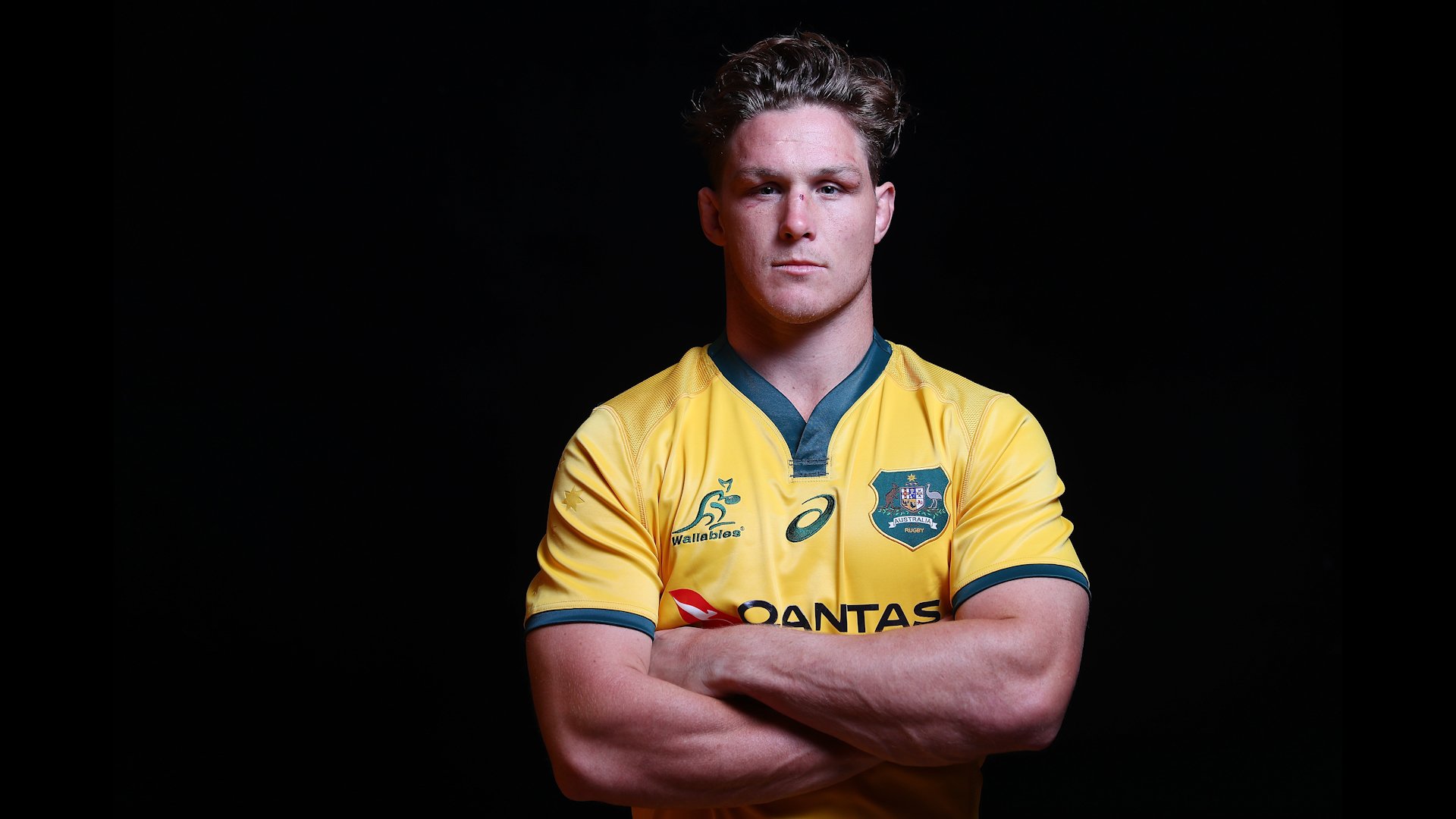'Would be mad not to have Hooper as captain': Wallabies captain's reappointment draws mixed reaction

After months of speculation about his future, Michael Hooper has been re-appointed as the captain of the Wallabies under Dave Rennie.
Hooper was largely a logical choice for the role as the incumbent, and now looks set to pass George Gregan as the longest-serving captain of the Australian national side. He’s also had plenty of test experience with and without the captaincy, as the second most capped campaigner in the Wallabies squad with 99-tests to his name.
But still, Hooper’s selection has both drawn praise and raised a few eyebrows, with the 28-year-olds there having been plenty of questions surrounding his place the team follwing his form throughout Super Rugby AU. Reds up-and-comers Fraser McReight and Liam Wright, both had imrpessive seasons, and applied plenty of pressure on Hooper’s hold on the seven jumper.
If Michael Hooper is the captain then it goes without saying that Michael Hooper is the first-choice openside flanker. @TomVinicombe examines what that means for the rest of the @Wallabies loose forwards.https://t.co/DKKFFBnX6f
— RugbyPass (@RugbyPass) September 23, 2020
But Hooper’s work rate has once again spoken volumes about his importance to any side, and has seemingly all but locked up his place in the Wallabies seven jersey. He exhibits an elite work rate, constantly running his heart out while playing in arguably the most combative position on the field.
More importantly though, as Australia try to get the most out of the promising next generation of talent coming through their ranks, they need a leader.
He’s set to lead a 44-man Wallabies squad which includes 16-uncapped players, many of those being members of last year’s Junior Wallabies World Championship Finalists. Hooper’s proven leadership will simply be invaluable this early on in their test careers. This was enough to keep David Pocock, who was arguably the best openside in World Rugby for a while, out of the Wallabies seven jersey for years.
At the same time though, Hooper has one of the worst winning records of any regular Wallabies captain, which in itself could’ve warranted change.
Following the announcement on Wednesday afternoon, here’s how Twitter reacted to the news:
https://twitter.com/dru_ausage/status/1308727192742846465?s=20
https://twitter.com/EdwardB24376757/status/1308647423393357824?s=20
https://twitter.com/nlm78/status/1308613531445518336?s=20
I may be a kiwi, but much respect for Michael Hooper, all the very best for your time in New Zealand @wallabies .
— Suzanne Clark (@SuzymaySuzanne) September 23, 2020
Congrats Michael Hooper who has retained the @wallabies captaincy under new Coach Dave Rennie. Hoops deserves another crack under a new Coaching and Management set-up. He’ll have some new faces in the side as well. Exciting times! @FOXRUGBY
— Greg Clark (@greg_clarkie) September 23, 2020
Last month, Hooper announced a shock move to Japanese Top League side Toyota Verblitz, for the first half of 2021. While the decision turned heads at the time, it’s come under a lot more scrutiny since Wednesday’s announcement.
Congrats and well deserved Michael Hooper but all Wallabies should be playing in an Australian Super Rugby team and supporting Australian rugby no matter how brilliant they are on and off the field !
— Jennifer Elizabeth (Liz) (@smithliz29) September 23, 2020
Hooper defected to Japan. I guess he will lead the Wallaby preparations via Skype?
— grist4mill (@grist4mill1) September 23, 2020
So tired of his face and the game moved on! He is really outdated! You need a different type of flanker these days
— Ismael Soeker (@soekerdotcom) September 23, 2020
Hooper will lead the Wallabies in two Bledisloe Cup tests in New Zealand against the All Blacks on October 11th and 17th. Following that, SANZAR and Rugby Australia confirmed on Thursday morning, that Australia would host the entirety of the Rugby Championship from November 7 to December 12.
The Wallabies gathered in camp earlier this week following the Super Rugby AU Final, as they begin their preparations for the test matches ahead.













































